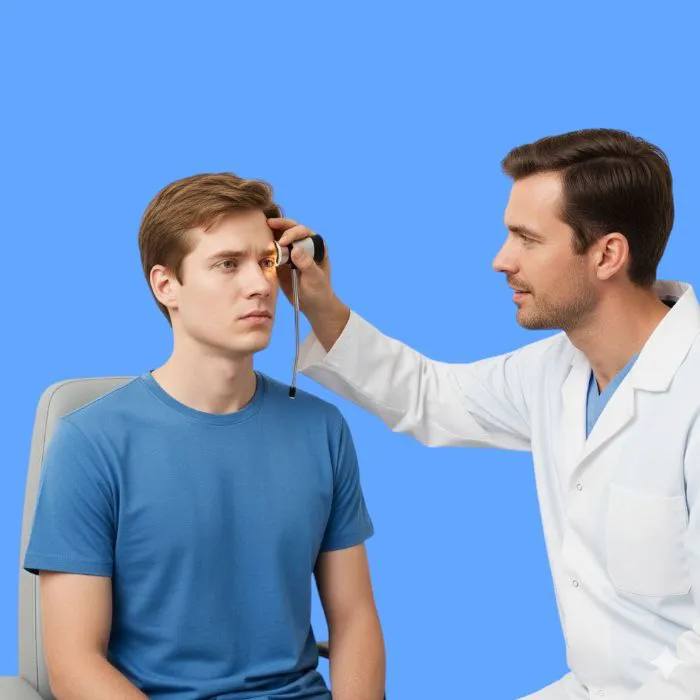What is retinal detachment?
Retinal detachment is an emergency condition that occurs when the retina separates from its supporting layer inside the eye, cutting off blood and nutrients.This can lead to vision loss if not treated quickly.
The detachment usually begins gradually, but in some cases, it can happen suddenly.
Causes of retinal detachment
The most common causes of retinal detachment include:
- Aging and thinning of the retina.
- Severe myopia (nearsightedness).
- Direct injuries to the eye.
- Previous eye surgeries, such as cataract surgery.
- A family history of retinal detachment.
- Inflammatory eye diseases.
- A tear or hole in the retina.
Symptoms of retinal detachment
Several symptoms may be noticed, including:
- Seeing flashes of light.
- Noticing floaters or black threads.
- A feeling of a shadow or curtain over part of the field of vision.
- Sudden blurring or loss of vision.
- Gradual loss of peripheral vision.
- Blurred vision.
- Rapid worsening of vision loss.
How to diagnose retinal detachment
The condition is diagnosed by examining the fundus of the eye using specialized instruments to detect tears or detachment.
The doctor may also use ultrasound imaging of the retina, especially if vision is blurred or there is cloudiness preventing a complete view of the retina.
Treatment of retinal detachment

There are several ways to treat retinal detachment, including:
Emergency surgery to reattach the retina.
- Using a laser to seal the tear before complete detachment occurs.
- Cryotherapy to stabilize the retina.
- Injecting gas bubbles into the eye.
- Close post-operative monitoring to prevent complications.
- Early treatment of small tears.
- Avoiding strenuous activities after surgery.
When to see a doctor?
It is recommended to see a doctor immediately in the following cases:
- Sudden flashes of light.
- A significant increase in floaters.
- Noticing a shadow or curtain in your vision.
- Sudden vision loss or severe weakness.
- After an eye injury.
- A previous history of the disease and the appearance of similar symptoms.
- Difficulty seeing details clearly.
Tips for preventing the disease
The most prominent recommended prevention methods include:
- Regular eye exams, especially for those with severe myopia.
- Early treatment of small retinal tears.
- Wearing eye protection while exercising.
- Managing chronic diseases such as diabetes.
- Avoiding eye injuries.
- Follow-up appointments after eye surgery.
- Consulting a doctor if any sudden symptoms appear.
Frequently Asked Questions
Does retinal detachment lead to blindness?
Yes, if not treated quickly.
Can retinal detachment be treated without surgery?
Surgical intervention is usually required.
Is retinal detachment painful?
It is not usually painful, but its symptoms are serious.
Does vision return after retinal detachment treatment?
It improves in many cases, depending on the speed of treatment.
Article Summary
Retinal detachment is a serious medical condition in which the retina separates from its normal position, threatening permanent vision loss if not treated immediately.
Treatment relies on prompt surgical intervention and ongoing monitoring to preserve vision.